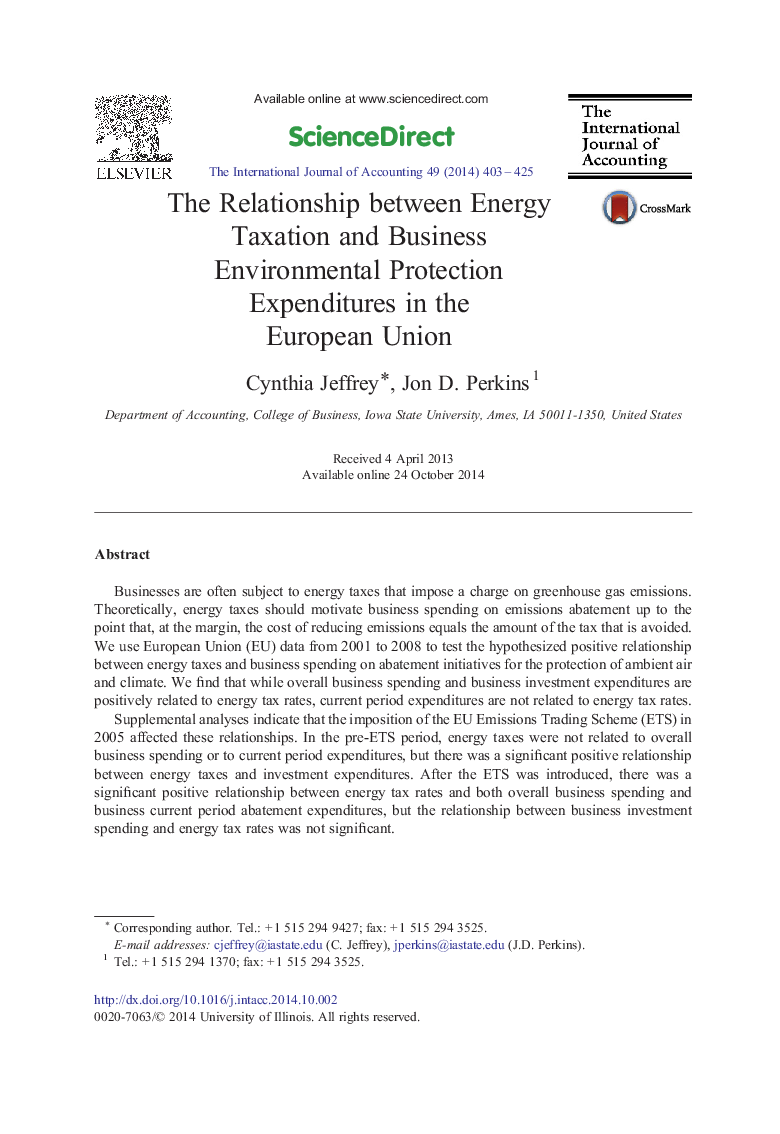| Article ID | Journal | Published Year | Pages | File Type |
|---|---|---|---|---|
| 1004855 | The International Journal of Accounting | 2014 | 23 Pages |
Businesses are often subject to energy taxes that impose a charge on greenhouse gas emissions. Theoretically, energy taxes should motivate business spending on emissions abatement up to the point that, at the margin, the cost of reducing emissions equals the amount of the tax that is avoided. We use European Union (EU) data from 2001 to 2008 to test the hypothesized positive relationship between energy taxes and business spending on abatement initiatives for the protection of ambient air and climate. We find that while overall business spending and business investment expenditures are positively related to energy tax rates, current period expenditures are not related to energy tax rates.Supplemental analyses indicate that the imposition of the EU Emissions Trading Scheme (ETS) in 2005 affected these relationships. In the pre-ETS period, energy taxes were not related to overall business spending or to current period expenditures, but there was a significant positive relationship between energy taxes and investment expenditures. After the ETS was introduced, there was a significant positive relationship between energy tax rates and both overall business spending and business current period abatement expenditures, but the relationship between business investment spending and energy tax rates was not significant.Our results indicate that energy taxes are effective in motivating business spending on emissions abatement. However, the nature of the effect varies across investment spending and current period expenditures. As both long-term and current initiatives are necessary to meet abatement goals, policymakers should be aware of these differences.
